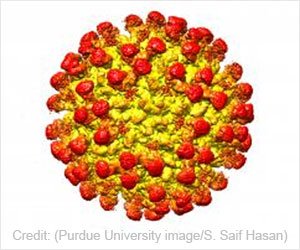Use Zika Virus to Combat Prostate Cancer With Caution

Preclinical trials have shown that the zika virus can inhibit the spread of prostate cancer, suggesting its potential use in treating the disease. However, a new study by researchers at the State University of Campinas (UNICAMP) in So Paulo State, Brazil, shows that zika can trigger a persistent inflammatory process in healthy epithelial cells and damage the male reproductive system.
The researchers analyzed the effects of the virus on tumor cells and healthy cells, reporting their findings in an article published in the Journal of Proteome Research. After the 2015 zika outbreak in Brazil, they began studying zika’s effects on biofluids such as saliva, serum, and semen, as well as investigating whether prostate cells could act as a viral reservoir.
Reinforcing the Potential Use of Zika Virus to Combat Prostate Cancer
Although other studies had suggested that zika easily replicates in healthy prostate epithelial cells and human prostate adenocarcinoma cells, more research was needed to analyze the mechanisms of persistent infection by the virus and its consequences for the metabolism of cells.
This study was the first to use an in vitro prostate cell model in a metabolomic assay – an analysis of all products of the metabolism of infection by zika. Infected normal prostate epithelial cells (PNT1a) and adenocarcinoma cells (PC-3) were extracted, ionized, and infused into a high-resolution mass spectrometer. A statistical analysis of the data was based on exposure for five, ten, and 15 days after infection.
They observed the effects on the PC-3 cells for the first five days and checked our findings against those of previous studies that pointed to anticancer action. More of these cells died as exposure progressed. The results could serve as the basis for the treatment of prostate cancer.
Advertisement
In the case of PNT1a cells, infection by zika led to noteworthy metabolomic alterations, especially regarding glycerolipids, fatty acids, and acylcarnitines during the longest period of infection.
These effects could be linked to an increase in oxidative stress metabolites associated with carcinogeneses, such as tyrosine, amino tyrosine, and hydroxyguanosine so that long-term treatment itself could cause a recurrence of prostate cancer, and prolonged infection would contribute to its malignancy by subjecting cells to even more stress.
Having shown that the zika virus can act on prostate cancer cells, researchers must now conduct more studies to investigate its effects on similar cells to confirm the discovery and analyze metabolic and replication-related factors.
Source: Eurekalert
Source link
#Zika #Virus #Combat #Prostate #Cancer #Caution



